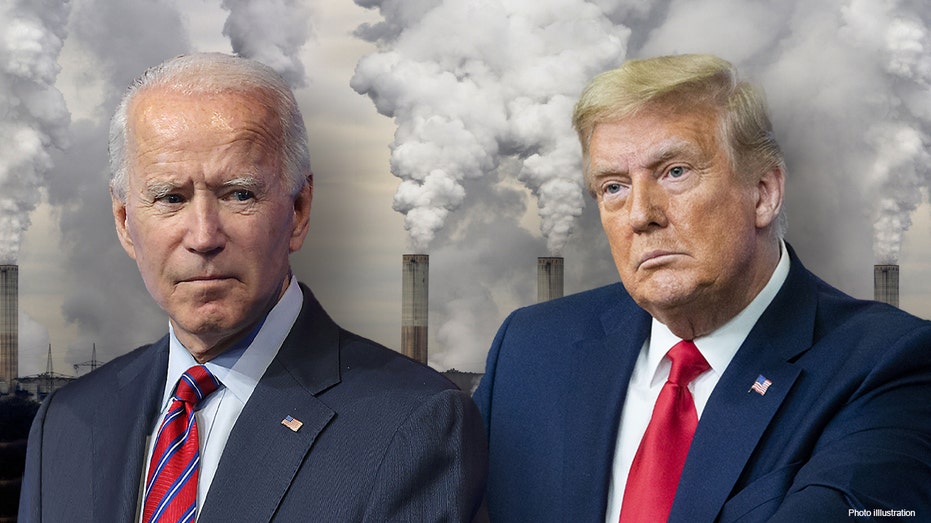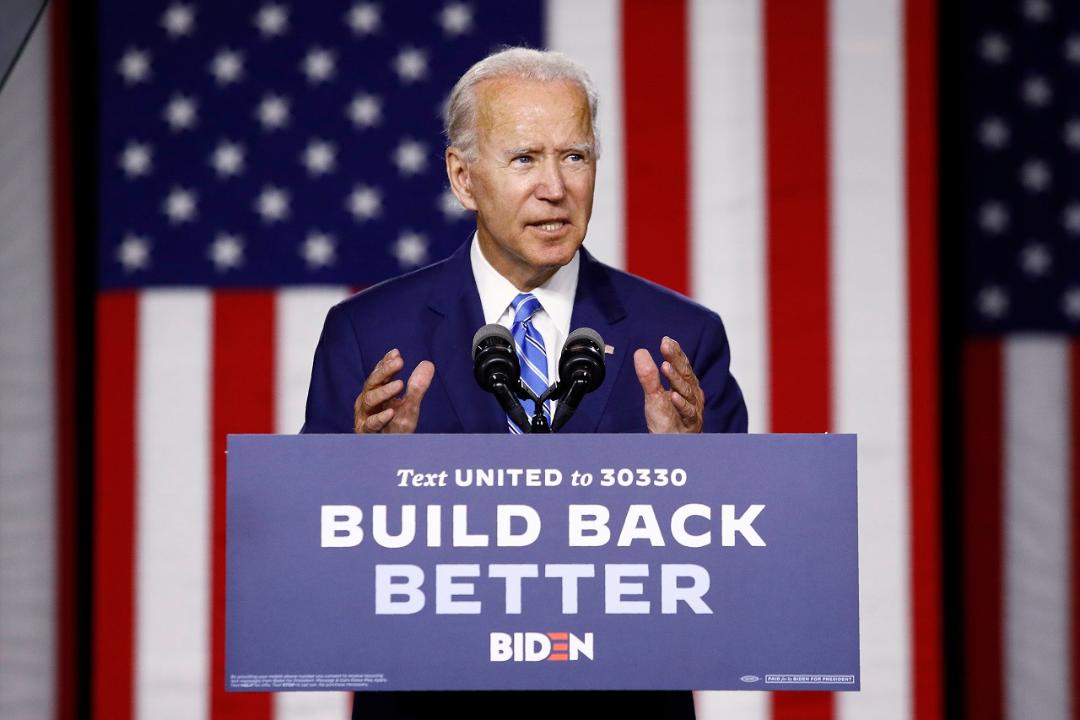Trump wields power to stymie Biden on Paris climate deal
President-elect would 'try to sign up as a pretend partner of some kind,' think tank claims
President Trump could use the Senate to foil an attempt by his successor, Joe Biden, to return the U.S to the 2015 Paris Agreement on combatting climate change.
Biden, scheduled to take office Jan. 20, reiterated last week his commitment to rejoin the accord on the first day of his administration. It was reached during the last years of the Obama era, when Biden was vice president.
Trump, whose legal challenges to the Nov. 3 election results have so far failed to extend his own term, said in his first year in office that he would withdraw from the pact, a process that was completed the day after this year's vote.
The Paris Agreement is a legally binding international treaty that calls on members to work toward a climate-neutral global economy -- one that doesn't increase greenhouse gases that raise the planet's temperature -- by the middle of the century. The members update their plans every five years.
One libertarian U.S. think tank wants Trump, who walked away from the deal on the grounds that it would drain American jobs and wealth, to use what amounts to a legal maneuver to stymie Biden's plans.
“We are encouraging him to review the agreement and recognize that it is in fact a treaty and transmit it before January 20 to the Senate for its advice,” Myron Ebell, Center for Energy and Environment director at the Competitive Enterprise Institute, said on a conference call on Thursday. “If that happens, the treaty will be in limbo until such time as the Senate decides to vote on it.”
BIDEN INTERIOR NOMINEE DEB HAALAND IS ANTI-FRACKING, CO-SPONSORED AOC’S GREEN NEW DEAL
The White House did not respond to FOX Business’ request for comment.
The Senate would need a two-thirds majority to ratify the treaty, something that is unlikely due to the makeup of Congress’ upper chamber. Republicans currently hold a 50-48 edge over Democrats with two runoffs in Georgia set for Jan. 5.
Before pulling the U.S. out of the Paris Climate Accord, Trump recognized the deal as being entered legally through a treaty. Former President Barack Obama and former Secretary of State John Kerry, however, had used an executive order to join the pact, making the U.S. the only country not to formally ratify it.
Biden will “have a lot of problems dealing with the fact that we're not in Paris,” Ebell said. “He'll undoubtedly try to work around it and sign up as a pretend partner of some kind and say we're going to do all these things even though we're not officially in it.”
CLICK HERE FOR THE FOX NEWS APP
Even without being in the Paris Agreement, Biden would likely receive help from business leaders across the country in working toward its goals.
The Business Roundtable, members of which include JPMorgan Chase CEO Jamie Dimon, General Motors CEO Mary Barra and Walmart CEO Doug McMillon, in September called on businesses and governments worldwide to limit global temperature rise this century to less than 2 degrees Celsius, a stipulation of the agreement.

Photo credit: Getty Images
In the meantime, Biden has already begun to shape his climate and energy team.
In addition to naming Kerry as climate envoy, he has selected Gina McCarthy, a former administrator of the Environmental Protection Agency under Obama, to serve as his senior adviser on climate and tapped former Michigan Governor Jennifer Granholm to lead the Department of Energy. He has not yet chosen an EPA head.
BIDEN CLIMATE PICK FACES BIPARTISAN BACKLASH FOR PREVIOUS HANDLING OF FLINT WATER CRISIS
Fighting climate change is a key part of Biden’s platform, which has used Rep. Alexandria Ocasio-Cortez’s Green New Deal calling for the U.S. to reach net-zero carbon emissions by 2050, as a “framework.”
The Green New Deal has been criticized by conservatives for its price tag, among other things.
“Biden pledges to spend $2 trillion on his climate plan during his first term,” said James Taylor, president of The Heartland Institute, a conservative and libertarian public policy think tank.
“That puts the average American household on the hook for $17,000,” he added. “I imagine that most households don't have that kind of money just laying around to spend on this particular climate plan.”




















